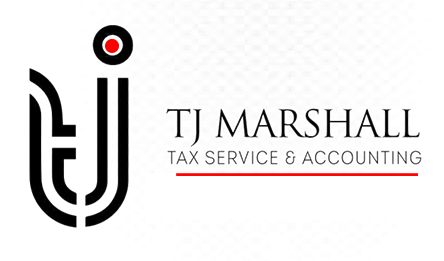Definition and Importance of IRS Compliance
IRS compliance refers to the adherence to the tax laws and regulations set forth by the Internal Revenue Service (IRS) in the United States. Compliance includes the accurate reporting of income, the timely filing of tax returns, the proper payment of taxes, and the maintenance of thorough financial records. Ensuring compliance is crucial for avoiding legal issues, financial penalties, and maintaining good standing with the government.
The importance of IRS compliance cannot be overstated. Non-compliance can lead to severe consequences, including audits, fines, and even criminal charges in cases of tax fraud. On the other hand, businesses and individuals who remain compliant benefit from a clear financial record and a lower risk of legal troubles.
Role of the IRS in Tax Regulation
The IRS is the U.S. government agency responsible for collecting taxes and enforcing tax laws. It ensures that individuals and businesses meet their tax obligations and provides resources to help taxpayers understand their responsibilities. The IRS also conducts audits and investigations to identify cases of tax evasion and fraud.
Who Needs to Be IRS Compliant?
IRS compliance applies to various entities, including:
- Individuals: All U.S. citizens and residents earning income are required to report it and pay applicable taxes.
- Businesses: Companies of all sizes must adhere to corporate tax regulations, payroll taxes, and other business-related tax laws.
- Nonprofits: Even tax-exempt organizations must file specific forms and maintain accurate records to retain their status.
Key Areas of IRS Compliance
Accurate Tax Reporting
Proper tax reporting involves disclosing all sources of income, including wages, freelance earnings, investment returns, and other financial gains. Misreporting or underreporting income can trigger an audit and lead to penalties.
Timely Filing of Tax Returns
Filing taxes on time is a fundamental part of IRS compliance. Taxpayers must be aware of the deadlines for different types of tax filings, such as personal income tax returns (Form 1040) and business tax filings.
Proper Payment of Taxes
Paying taxes in full and on time is essential. This includes income tax, payroll tax, self-employment tax, and any other applicable taxes. Estimated tax payments may be required for freelancers and business owners who don’t have taxes withheld from their income.
Record Keeping and Documentation Requirements
Maintaining detailed financial records helps ensure compliance. Records should include income statements, expense receipts, payroll records, and previous tax returns. The IRS recommends keeping these documents for at least three to seven years.
IRS Compliance for Businesses
Employer Tax Responsibilities
Businesses with employees must comply with payroll tax requirements, including withholding income tax, Social Security, and Medicare taxes. They must also file W-2 forms for employees and 1099 forms for contractors.
Business Expense Deductions and Documentation
Businesses can claim deductions for legitimate expenses, but they must maintain proper documentation. Receipts, invoices, and detailed records support these claims and ensure they withstand IRS scrutiny.
Sales Tax and Other Regulatory Compliance
Depending on the state, businesses may need to collect and remit sales tax. Understanding state and federal tax obligations is crucial for maintaining compliance.
Corporate Tax Filing and Compliance
Corporations must file specific forms, such as Form 1120, and meet their tax obligations, including estimated quarterly payments and reporting dividends.
IRS Compliance for Individuals
Income Reporting
Individuals must report all income sources, including wages, freelance earnings, and investment income. Accurate reporting prevents discrepancies that could lead to audits.
Deductions and Credits Eligibility
Tax deductions and credits can reduce tax liability, but taxpayers must ensure they qualify and provide the necessary documentation.
Estimated Tax Payments
Freelancers and contractors who don’t have taxes withheld must make estimated tax payments quarterly to avoid underpayment penalties.
Handling Tax Notices and Audits
Receiving a notice from the IRS doesn’t always mean an audit, but it requires prompt attention. Understanding how to respond and provide requested documentation helps resolve issues efficiently.
Common IRS Compliance Issues
Late Filing and Payment Penalties
Failing to file tax returns or pay taxes on time results in penalties and interest charges.
Underreporting or Misreporting Income
Deliberate or accidental underreporting of income can lead to audits and severe penalties.
Improper Classification of Workers
Misclassifying employees as independent contractors can lead to payroll tax issues and fines.
Failure to Maintain Adequate Records
Inadequate record-keeping makes it difficult to support tax filings and deductions.
Ensuring IRS Compliance
Working with a Certified Tax Professional
Tax professionals provide expertise and ensure accurate, compliant tax filings.
Using Accounting and Tax Software
Modern software simplifies record-keeping and tax preparation, reducing the risk of errors.
Staying Updated on Tax Law Changes
Tax laws change frequently, and staying informed helps maintain compliance.
Conducting Internal Audits and Reviews
Regular reviews of financial records and tax filings help identify and address potential compliance issues.
Consequences of Non-Compliance
Financial Penalties and Interest
Late payments and inaccurate filings result in costly penalties and accrued interest.
Legal Actions and Audits
Severe non-compliance can trigger audits and legal action from the IRS.
Damage to Business Reputation
Tax issues can harm a company’s reputation and credibility.
Potential Criminal Charges
In cases of fraud, non-compliance can lead to criminal prosecution.
IRS Compliance Resources and Support
IRS Website and Tools
The IRS website offers forms, publications, and online tools for taxpayers.
Taxpayer Advocate Service
This independent organization helps taxpayers resolve disputes with the IRS.
Professional Tax Advisors and CPAs
Certified professionals provide guidance and support for complex tax matters.
Online Compliance Checklists and Guides
Various online resources offer checklists and guides for maintaining compliance.
Conclusion
IRS compliance is essential for avoiding legal and financial issues. By understanding tax obligations, maintaining accurate records, and seeking professional guidance when needed, individuals and businesses can ensure they meet IRS requirements. Proactive tax management and staying informed about tax law changes contribute to long-term financial health and stability.
